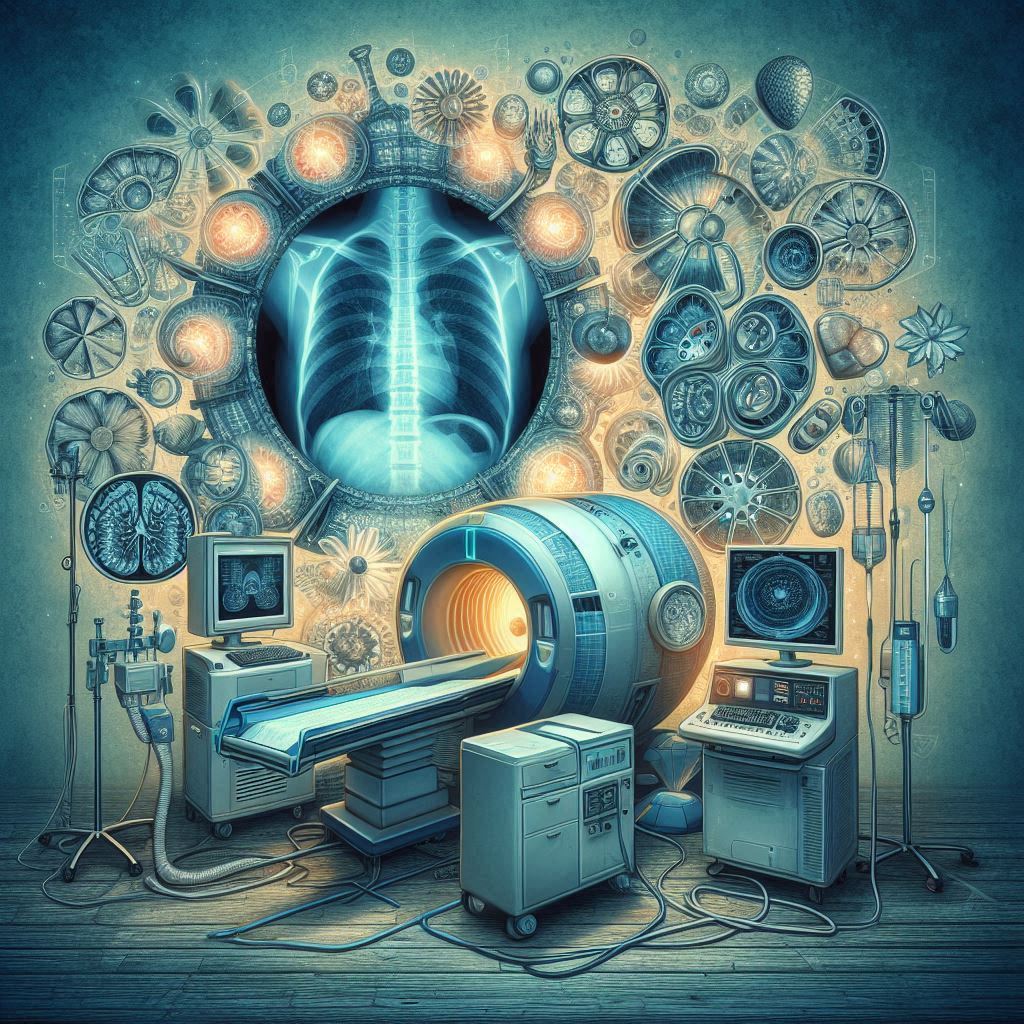This Course Structure is Curated as per the NEP-2020 Guidelines
Course Overview
M.Sc. Medical Radiology & Imaging Technology program at Malla Reddy Vishwavidyapeeth, Hyderabad, is a postgraduate course designed to provide specialized training in advanced imaging modalities and techniques for diagnosing and monitoring various medical conditions.
This program focuses on equipping students with the theoretical knowledge and hands-on skills from 1st semester itself. The curriculum focuses on the use of X-ray, computed tomography (CT), magnetic resonance imaging (MRI), ultrasound, and nuclear medicine technologies. Students gain hands-on experience in operating imaging systems, analyzing diagnostic images, and implementing safety protocols to ensure accurate patient care and diagnostic precision.
Graduates of this program emerge as ‘Skilled Senior Radiology and Imaging Technologists’, enabling them to pursue further higher studies and research in Radiology and Imaging Technology, along with plenty of job opportunities globally.

Course Details
Description: 2 Years Degree Program
No. of Seats: 20
No. of Credits: 80 minimum & as specified
- Eligibility
- Curriculum Structure
- Program Outcomes
- Career Enhancement
- Higher Studies
- Job Roles & Progression
The minimum eligibility is a B.Sc. degree in Radiology, Medical Imaging Technology, or equivalent with at least 50% aggregate marks from a recognized university.
| Semester | Name of the Subject |
| Semester 1 | Advanced Anatomy and Physiology Fundamentals of Radiology Radiographic Imaging Techniques Radiation Physics Practical: Basic Imaging Procedures |
| Semester 2 | Advanced Diagnostic Imaging (CT, MRI) Ultrasound Imaging Radiology Safety and Quality Control Pharmacology in Radiology Practical: CT and MRI Procedures |
| Semester 3 | Interventional Radiology Nuclear Medicine Imaging Research Methodology and Biostatistics Emerging Technologies in Imaging Practical: Nuclear Medicine Imaging |
| Semester 4 | Radiology Unit Management Advanced Imaging Techniques Thesis/Research Project Practical: Radiology Unit Operations and Compliance |
- Advanced Imaging Techniques: Proficiency in performing and interpreting advanced imaging procedures, including CT, MRI, and ultrasound.
- Radiographic Positioning and Techniques: Expertise in patient positioning, image capturing, and quality assurance in radiographic techniques.
- Radiation Safety and Quality Control: Knowledge of radiation safety protocols, exposure control, and compliance with radiology standards.
- Interventional Radiology Skills: Skills in assisting and performing interventional procedures guided by imaging, such as biopsies and catheter placements.
- Nuclear Medicine Imaging: Understanding of nuclear imaging procedures, including PET scans and gamma imaging.
- Radiology Unit Management: Skills in managing radiology operations, staff coordination, and patient scheduling in diagnostic imaging units.
- Certification in Advanced Imaging Modalities: Specialized training in CT, MRI, and ultrasound imaging.
- Interventional Radiology Certification: Focuses on minimally invasive procedures using imaging guidance.
- Radiation Safety Officer (RSO) Certification: Emphasizes safety practices and regulatory compliance in radiation use.
- Nuclear Medicine Certification: Covers specialized nuclear imaging techniques, including PET and SPECT.
- Certification in Radiology Unit Management: Provides skills in operational management, quality assurance, and patient care in radiology settings.
• Ph.D. in Radiology or Medical Imaging Technology
• Fellowship in Interventional Radiology
• Postgraduate Diploma in Nuclear Medicine
• Advanced Certifications in Pediatric or Cardiac Imaging
| Duration | Roles and Responsibilities | Salary Range |
| 0-3 years | Radiology Technologist, Imaging Technician | ₹4,50,000 – ₹7,00,000 per annum |
| 3-5 years | Senior Imaging Technologist, CT/MRI Specialist | ₹7,00,000 – ₹10,00,000 per annum |
| 5-10 years | Radiology Supervisor, Nuclear Medicine Technologist | ₹10,00,000 – ₹15,00,000 per annum |
| 10+ years | Director of Imaging Services, Chief Radiology Technologist | ₹15,00,000+ per annum |
Note: Salaries vary based on experience, location, and type of healthcare institution.

Fee Structure Per Academic Year
| Tuition Fee | Miscellaneous Fee | Scholarship | ||
| 200000 ₹ | 15000 ₹ | Above 90% – 40000 ₹ | Between 81-90% – 20000 ₹ | Between 71-80% – 10000 ₹ |




